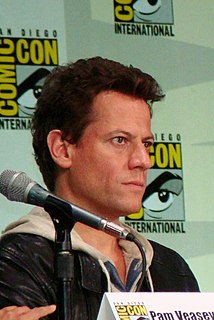A Quote by Andre Holland
There are so many brilliant, trained actors of color in America. If you just think about it, every year in the spring Julliard and NYU and Yale and hundreds of schools across the country graduate classes of trained actors, and in those classes are actors of color. So to say that there aren't enough actors of color is factually inaccurate.
Related Quotes
Learn as much as you can about performing. Live theater, improv classes, music, stand up comedy, dance, anything to make yourself confident and comfortable in front of an audience. It'll all come in handy when auditioning for producers and performing with other actors. The best voice actors all have a live performance background. And are competent, fearless, incredibly creative actors.
Even when I went to America I didn't work for four years. It wasn't like I came to New York and it was the land of milk and honey. It was just as much of a hard graft. But there's a lot more opportunity nowadays across the board for actors, no matter what color you are, with the Internet and small productions.
For many years, I have been moved by the blue at the far edge of what can be seen, that color of horizons, of remote mountain ranges, of anything far away. The color of that distance is the color of an emotion, the color of solitude and of desire, the color of there seen from here, the color of where you are not. And the color of where you can never go.
My experience over the years with working with people who are not actors or not trained actors is that you have to get to know them well enough to see what they have that's translatable onto the screen. So you're constantly calibrating to play to their strengths. And the key is to never ask them to do things that are beyond their abilities or are really far away from who they are at their core.


































